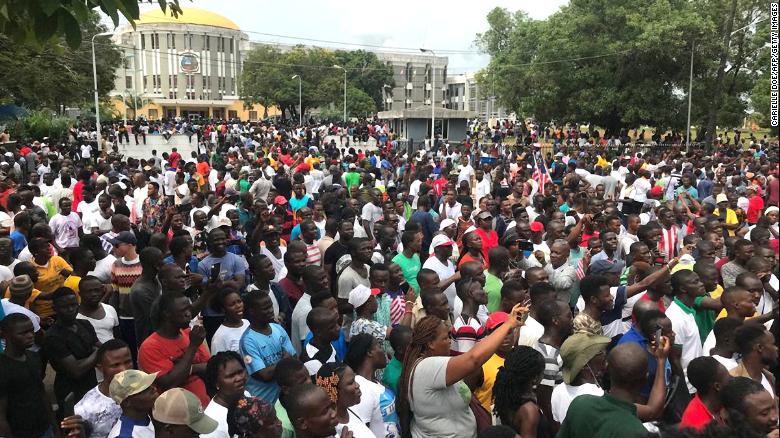Thousands of Liberians gathered in the capital Monrovia Friday to protest corruption and creeping dictatorship in the country. Social media sites were
Thousands of Liberians gathered in the capital Monrovia Friday to protest corruption and creeping dictatorship in the country. Social media sites were later blocked to quell the protests, according to the internet monitoring platform NetBlocks. WhatsApp, Instagram, Snapchat, Facebook, Google’s Gmail service and the website of The Associated Press were among the sites affected, NetBlocks said.
Bai Sama G. Best, managing director of Liberia’s Daily Observer newspaper, said some citizens are using virtual private networks (VPN) to bypass the restrictions. Liberia’s Minister of Information Eugene Nagbe confirmed that social media platforms were shut down temporarily because of security concerns.
“We have restored some of them. We are not saying that the protesters were carrying out things detrimental to the nation, but the national security apparatus said there were threats to the country and the services were temporarily disrupted and have been restored.”
The protests were organized by a group called the Council of Patriots, which says it is a conglomeration of citizens, civil society activists, youth workers and major political parties. Protesters presented a petition to delegates from the government of President George Weah, who has been in office for just over one year. The document stated that Liberians are suffering “harsh economic conditions being caused … and encouraged by bad governance, deliberate and wanton collapse of integrity systems…”
Nagbe said Weah inherited a “dire economic situation,” and accused the country’s opposition of driving the protests.
“Mr. President is working to restore some of the issues that he inherited. “The opposition is now using the streets to get what they didn’t get at the ballot box, he said.”
George Weah, a former football star who was named FIFA’s World Player of the Year in 1995, took over in 2018 from Africa’s first female president, Ellen Johnson Sirleaf, in Liberia’s first democratic transfer of power since 1944. The West African nation of 4.8 million people has been ravaged by civil war, the Ebola virus and corruption
